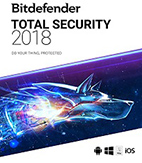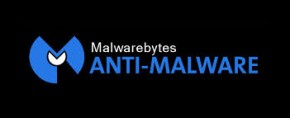by Clark and Kathy Kidd
Many parents today have found themselves in the awkward position of having children with far better computer skills than they have. As parents, they understand some of the dangers that exist in this new digital world, but are not really certain how to tell if their children are safe online. To complicate matters, a child or teen may run into Internet pornography by accident, or they may be introduced to it by somebody else. They may also be targeted by online pedophiles. In any case, the door is hard to shut once it has been opened. Parents should be ever-vigilant in making sure that pornography hasn’t gotten its hooks into any members of the family, or that a child isn’t being stalked by an online predator.
There are certain behaviors that indicate a child may not be OK online, or that he or she has attracted the attention of a sex offender. Although none of these warning signs on their own prove that illicit activities are taking place, be suspicious if you start noticing any of the following behaviors:
- The child starts to spend an excessive amount of time online. Although some of this is normal as children learn about the wonders of the Internet, a sudden excessive desire to be online should arouse suspicions.
- The child is online at unusual times of the day, especially late at night or when other family members are not at home. Most sex offenders are online during the evening, so you should take extra care to control evening access. Needless to say, pornographic websites are available at any time.
- The child spends most of her time in chat-rooms. This is where sex offenders usually contact their victims. It could be that your child just doesn’t realize how many other resources may be enjoyed online. If so, you need to teach her.
- The child looks guilty or acts startled when you enter the room containing the computer. He might turn off the monitor or cause it to switch to another screen so that you can’t see what he has been viewing. When he uses the printer, he removes the printed material immediately and puts it away so that you can’t see the printed side of the paper.
- The child gives evasive answers when you ask questions about her online activities.
- You find pornography stored on the computer. Child pornography is often used by sex offenders to get children curious about such activities.
- The child starts to save files on floppy disks, which he then removes and takes with him. Although there are legitimate reasons for using floppy disks, the use of removable disks may also indicate that improper files are being sent and saved.
- The child starts to receive phone calls from strangers, particularly long-distance phone calls.
- The child starts making unusual long-distance calls. Sometimes these can be uncovered by looking at your long-distance bill, but this isn’t always the case. Some sex offenders tell children to call them collect, or even establish toll-free lines.
- The child receives unusual mail or packages that are unmarked or that are from people you don’t know. Sex offenders often send pictures, gifts, or even plane tickets through the regular mail. Or family members could be ordering pornographic materials through Internet sites.
- The child suddenly becomes withdrawn from the rest of the family. She may be hostile to family members or uninterested in family activities. Indulging in illicit activities causes guilt that may cause family members to withdraw in shame. In addition, some sex offenders try to disrupt family harmony to build a closer relation with the child.
- You suspect the child might be accessing the Internet through someone else’s account. Sex offenders will often supply an alternate user name and password that bypasses the controls you may have in place on the child’s regular account. Your child might also be using such an account away from home, such as at school or the public library.
- You start seeing unfamiliar charges on a family credit card. Internet pornography isn’t free. It has to be paid for somehow. Children may copy and use a credit card number, counting on the fact that many credit card users don’t inspect their monthly statements.What Can I Do?
Management of the Internet can best be approached through understanding, intelligent discussions, reasonable rules, a certain amount of trust, and suitable punishment when it is warranted-in other words, by using the same techniques that successful parents already use to manage most aspects of family life. We strongly encourage families to draw up a contract of behavior regarding Internet use that all family members are expected to abide by; and then have each family member sign that contract as an agreement to live by the rules. Just as with your general family rules, your children need to know that the Internet guidelines are put in place to protect them-and the whole family-from the dangers they may encounter online.
Don’t make the mistake of thinking that pornography only traps men or adults. Anyone can become hooked on pornography-from innocent children to corporate executives to religious leaders. Your family is not exempt from a potential pornography addiction, no matter how much you may want to believe that this is the sort of thing that happens to other people. You are the safeguard who is standing between pornography and your family, and your vigilance is essential.
Children should understand and agree that their parents always have the right to access their online accounts and check their activities. Some children will probably not like this, and some parents themselves may not want to do it. After all, it goes against the rules of trust, and it’s the electronic equivalent of searching through your child’s dresser drawers. But just as Mom and Dad set the rules for using the family car, they should also set the rules for using the family computer. Although most parents will not need to access their children’s accounts often, they should still maintain the right to do so when necessary. Many times, just knowing that parents can check all email and computer use will help encourage children to keep the rules.
And a word of caution: If you do catch a family member exploring improper material, don’t automatically assume he is doing it on purpose. Many Internet sites, particularly ones that feature pornography, go out of their way to make sure they can easily be found. Family members may stumble upon such material while looking for harmless information.
One way of reinforcing your family rules is the loss of online privileges, or the imposition of stronger parental controls. If you take away privileges, don’t rely on the child’s word that he won’t get online. Instead, use the software to lock the child out of the system. This can be done by changing the password used to access the child’s user name, and don’t reveal the new password until the probation period is ended. During the probation period, make sure your child is not spending time with friends who are online. You might require the child to be “grounded” at home for the duration of the period.
If this seems harsh, just keep in mind that children who engage in inappropriate online activity put themselves-and their entire family-in grave danger, the most serious being actual physical contact with a predator. Don’t put off establishing-and enforcing-a clear set of Internet guidelines. The safety of your family is at stake.
Clark L. and Kathryn H. Kidd are the authors of A Parent’s Survival Guide to the Internet. This easy-reading guide can bring parents at every level of computer literacy-from clueless to aficionado-up to speed on how to enjoy the Internet’s numerous benefits while avoiding its many dangers.








